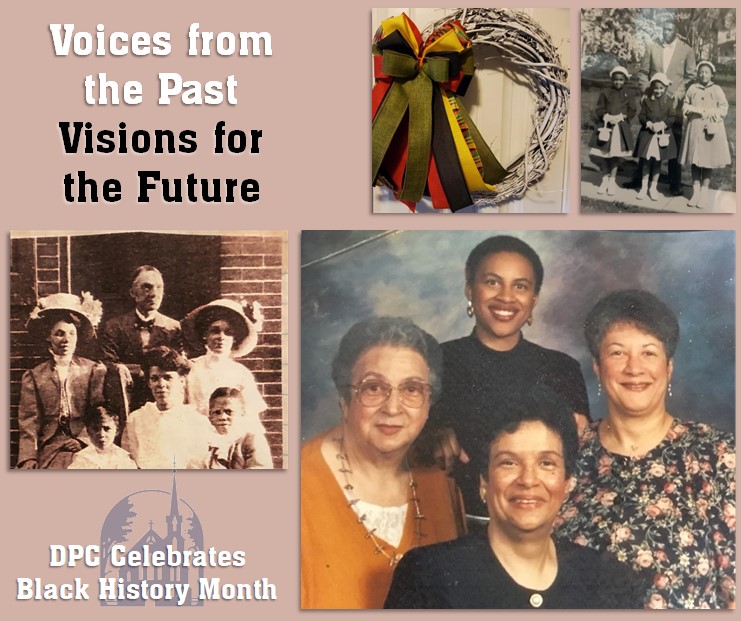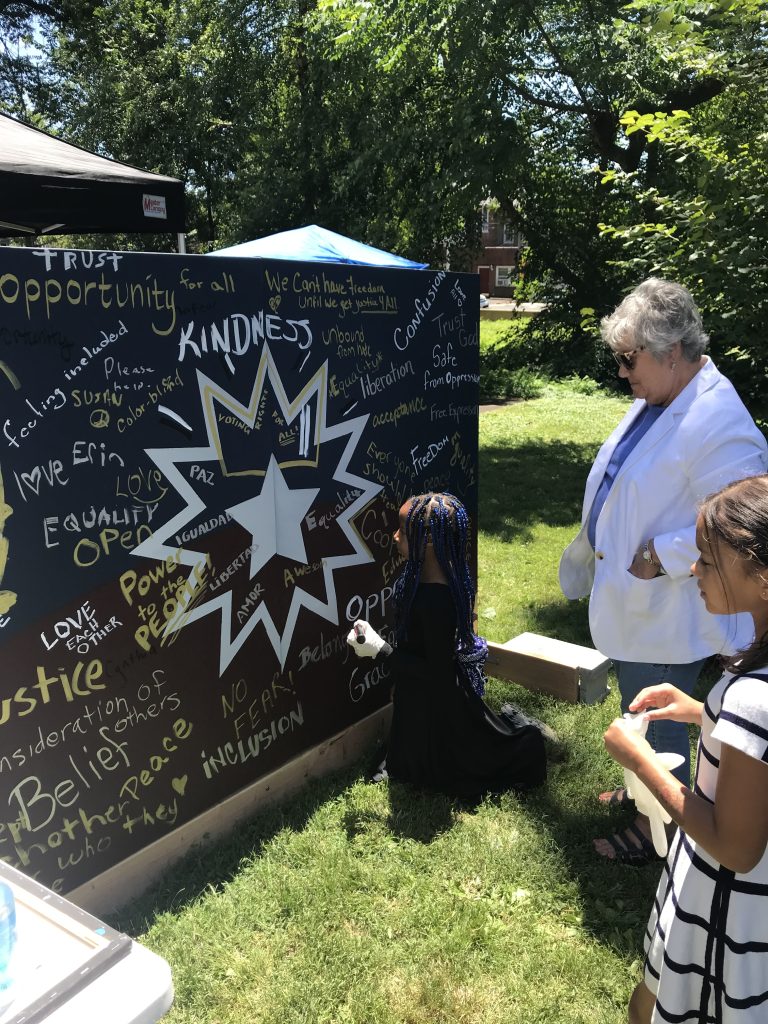History
Doylestown Presbyterian Church is committed to creating a more compassionate, caring, and just world. To get there we must learn from the past, listen to and learn from those with us in the present, and actively work to shape the future to create a world where structural racism is no longer present.

Here, we offer details of the working knowledge of the history of race relations at DPC, along with tenants of our faith that compel Presbyterians to stand firmly against social injustice, and to reconcile ourselves to God and to each other. Our history contains references to many persons of color who were active in our fellowship and hints that DPC may have been part of the Underground Railroad. We endeavor to work with the History Committee to find out more.
We invite you to visit our Black History Month Homepage as we learn and grow together.
Creeds and Confessions
The PC(USA)’s creeds and confessions, which identify what we believe and what we resolve to do in the world, include two confessions specific to race: The Confession of 1967 and the Belhar Confession. These documents are a guiding light in our calling as Christians as we answer God’s call to create a world where structural racism no longer exists for marginalized groups.
The Confession of 1967
This statement, which concerns the reconciliation of Jesus Christ, addresses race directly in section 9.44a
God has created the peoples of the earth to be one universal family. In his reconciling love, God overcomes the barriers between sisters and brothers and breaks down every form of discrimination based on racial or ethnic difference, real or imaginary. The church is called to bring all people to receive and uphold one another as persons in all relationships of life: in employment, housing, education, leisure, marriage, family, church, and the exercise of political rights. Therefore, the church labors for the abolition of all racial discrimination and ministers to those injured by it. Congregations, individuals, or groups of Christians who exclude, dominate, or patronize others, however subtly, resist the Spirit of God and bring contempt on the faith which they profess.
The Confession of Belhar
This statement was written in South Africa during Apartheid and is named for the city in South Africa where it was initially adopted. It focuses on Unity, Reconciliation, and Justice in a church environment where racial separation made it impossible to come together as brothers and sisters in Christ to worship and pray. The confession was added to Book of Confessions in 2016 by the PC(USA) General Assembly.
More recent statementsThe 222nd General Assembly (2016) of the Presbyterian Church(USA) made this statement:
Racism is a lie about our fellow human beings, for it says that some are less than others. It is also a lie about God, for it falsely claims that God favors parts of creation over the entirety of creation. Because of our biblical understanding of who God is and what God intends for humanity, the PC(USA) must stand against, speak against and work against racism. Anti-racist effort is not optional for Christians. It is an essential aspect of Christian discipleship, without which we fail to proclaim the Good News of Jesus Christ.
The Presbyterian Church has a rich history of bold, courageous and gifted African-Americans who contributed and continue to contribute to the advancement of the denomination and efforts to advance social justice for all of our citizens. Click here to learn more about some of these brave men and women.
Juneteenth – A Time for Celebration, Remembrance, and Reflection
Juneteenth is the oldest nationally celebrated commemoration of the ending of slavery in this country. We take a look at the history behind the day and offer ways to celebrate it this year. CLICK HERE for more information.

In 2022, Doylestown Presbyterian Church members participated in the borough’s Juneteenth event and facilitated the creation of a mural where community members were invited to share what freedom means to them.
In the June 16, 2021 edition of Bridges and Beacons, DPC’s video devotional series, Marie Stevens celebrated the end of slavery in the United States as she reflects on Juneteenth, which is commemorated each year on June 19. Marie read from the Book of Exodus as she draws parallels between the plight of African-Americans and the Israelite slaves of Biblical times.